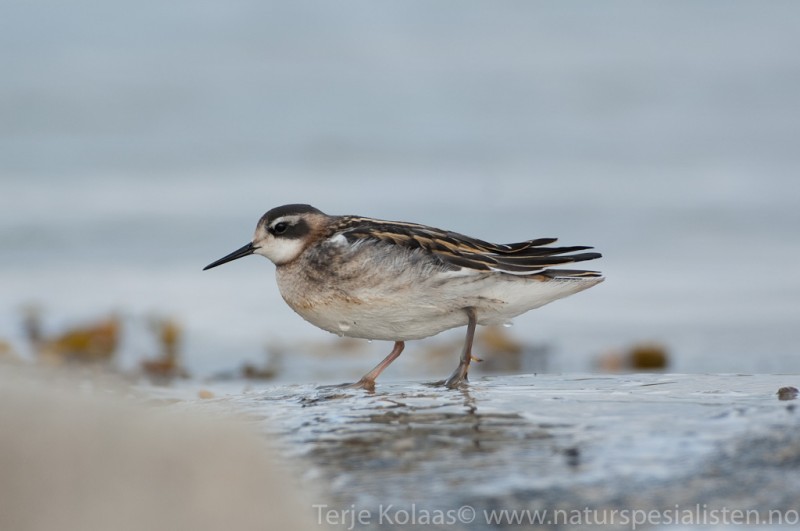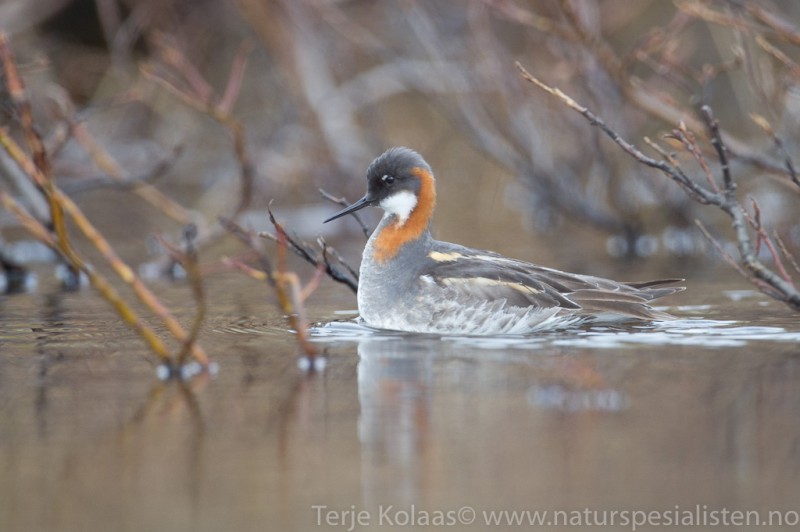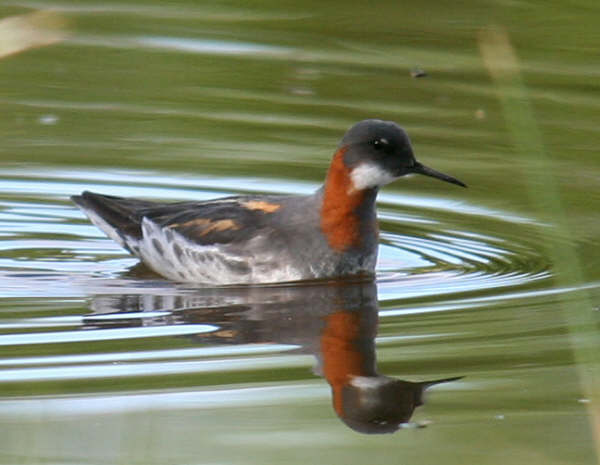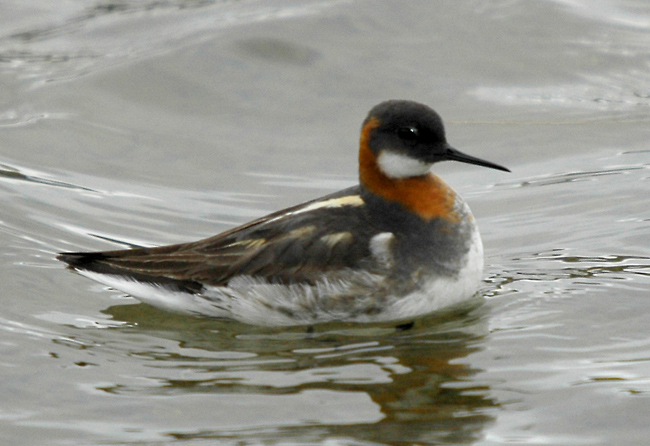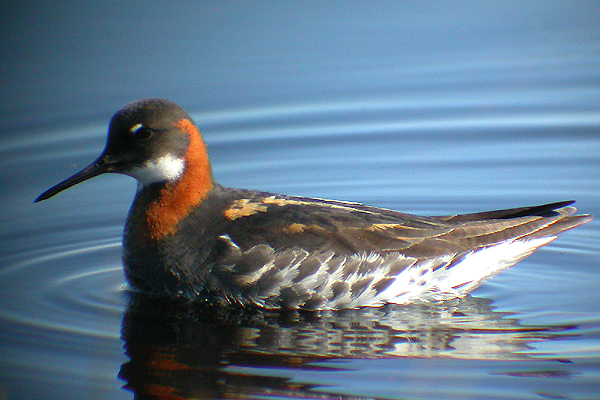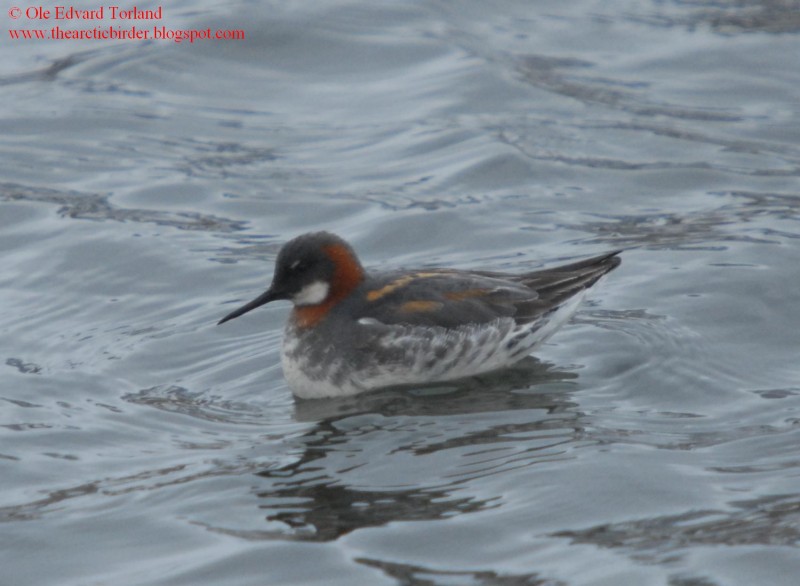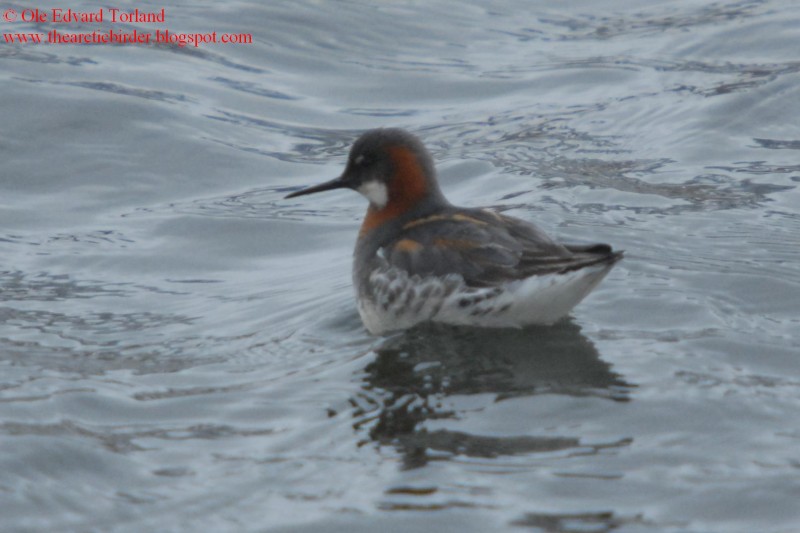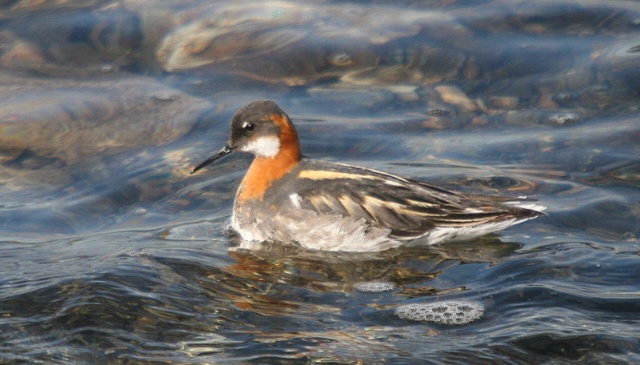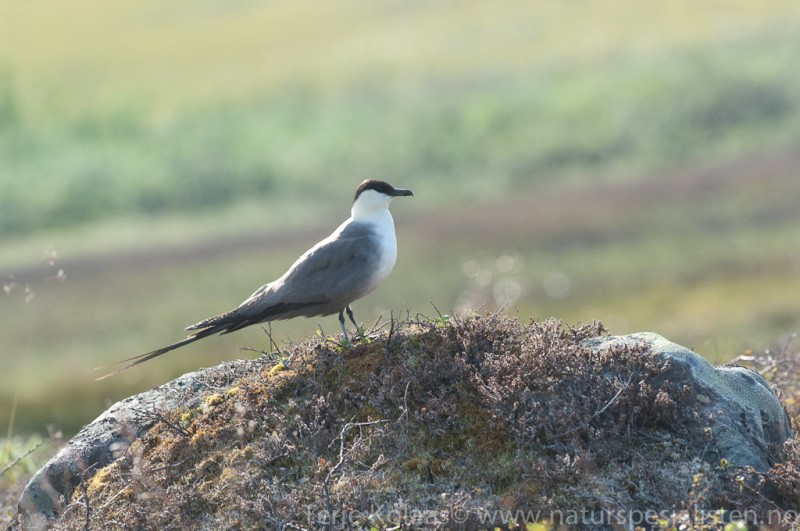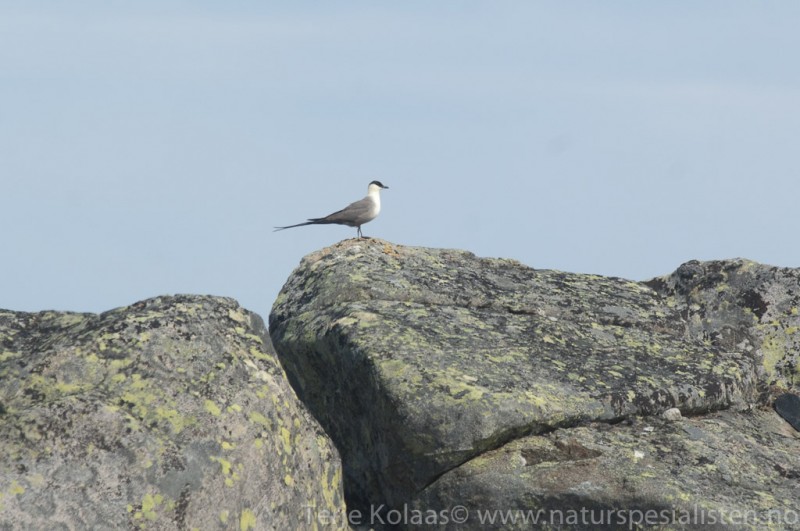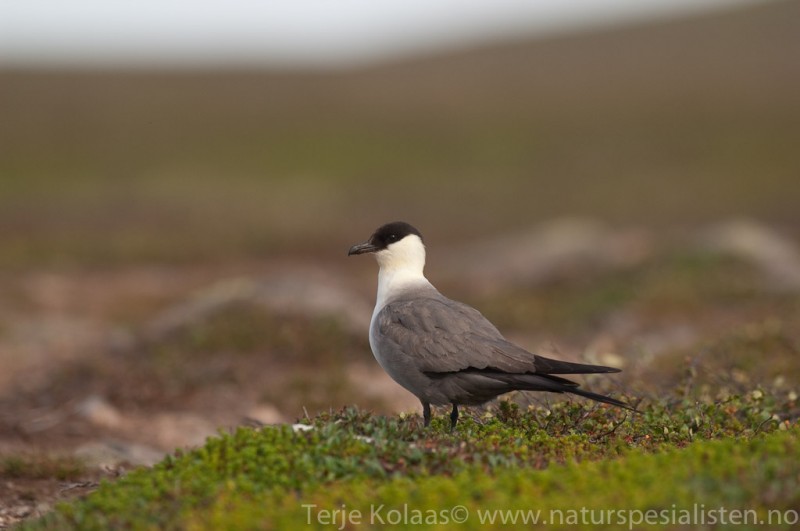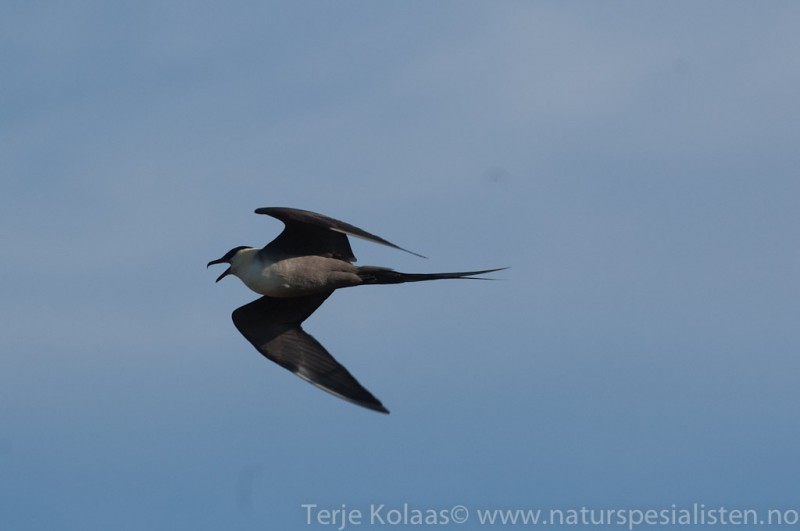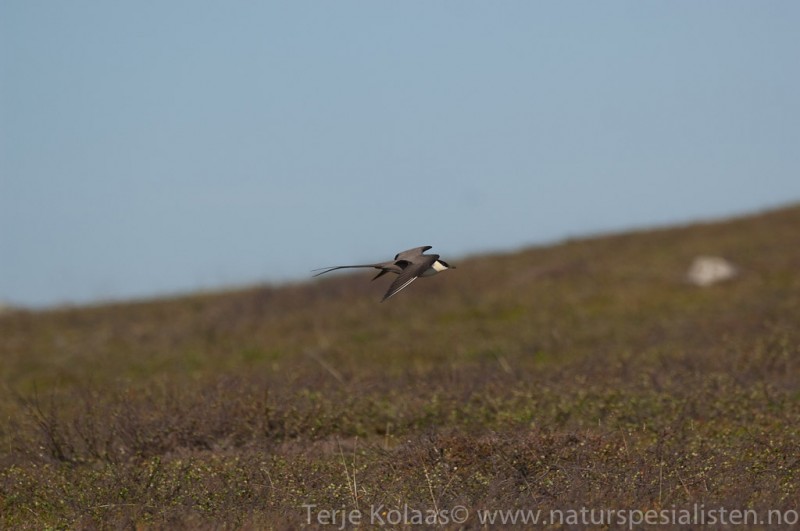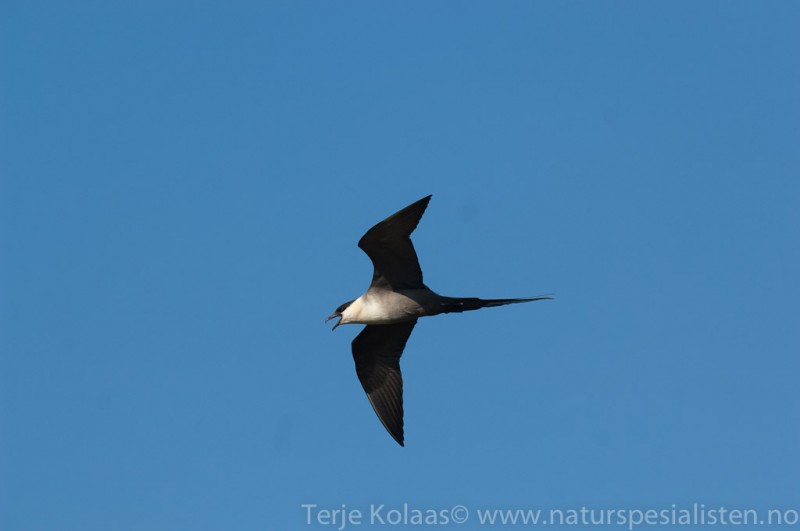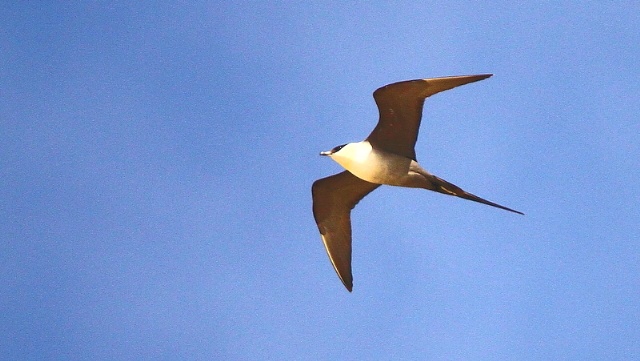Red-necked Phalarope (Phalaropus lobatus)
Long-tailed Jaeger (Stercorarius longicaudus)
Can only be confused with other phalaropes, due to swimming behaviour. Juveniles and winter plumage birds can be mistaken for Red Phalarope, but bill is much more needle-like and neck and body more slender. Juvenile birds with prominent buff stripes on back, and first winter birds with dark fore-crown (see Red Phalarope). Adult winter with white stripes on back, as opposed to Red Phalarope's uniformly grey back.
Sound:Short and sharp "teck", sometimes repeated to form trilling series. Also a mewing, nasal "veeoo".
Contact call:
Distribution:
Wikipedia: map (se also Xeno-canto below)
Ecology:Birdlife ecology
Links:
Observation.org Latest observations
Image search Flickr NB! May give other species
CCSounds:Recorded by Patrik Åberg,http://www.xeno-canto.org ,CC license
Breeding plumaged adults with streamers unmistakable (streamers comprising two thirds of total tail length). Adult plumage shows less variation than in other skuas. No hint of breast band, and transition between pale belly and darker vent very diffuse. No white patches at base of primaries of underwing in adults. Juveniles easily confused with juvenile Arctic Skua, but are more slender. Wings narrower and primaries and tail longer. Juvenile Arctic Skua shows white patches at base of primaries on both sides of wings, juvenile Long-tailed only on underwing, and on first few primaries of upper. Barred rump and tail coverts in juveniles. Flight elegant and buoyant.
Sound:Calls sharp and less full-bodied than Arctic Skua, and not so mewing. Short, double-accented "kew-wev" or short "kerk" in agitation. Also a long drawn-out "keeeeaah", resembling both Arctic Skua and Common Gull.
Alarm/flight call:
Distribution:
Wikipedia: map (se also Xeno-canto below)
Ecology:Birdlife ecology
Links:
Observation.org Latest observations
Image search Flickr NB! May give other species
CCSounds:Recorded by Andrew Spencer,http://www.xeno-canto.org ,CC license

 English
English Albanian
Albanian
 Armenian
Armenian
 Bulgarian
Bulgarian
 Catalan
Catalan
 Croatian
Croatian
 Czech
Czech
 Danish
Danish
 Dutch
Dutch
 Finnish
Finnish
 French
French
 Georgian
Georgian
 German
German
 Greek
Greek
 Hungarian
Hungarian
 Italian
Italian
 Latvian
Latvian
 Lithuanian
Lithuanian
 Macedonian
Macedonian
 Norwegian
Norwegian
 Polish
Polish
 Portuguese
Portuguese
 Romanian
Romanian
 Russian
Russian
 Sami : Lule sami
Sami : Lule sami
 Sami : North sami
Sami : North sami
 Sami : South sami
Sami : South sami
 Scientific names
Scientific names
 Serbian
Serbian
 Spanish
Spanish
 Swedish
Swedish
 Ukrainian
Ukrainian


